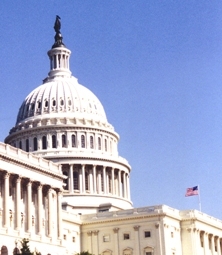Prominent Role for Milk, Other Dairy Products Maintained in New Rules
ARLINGTON, VA – New U.S. Department of Agriculture rules affecting foods sold in schools will ensure that nutrient–rich dairy products will continue to be offered to the nation’s students in a variety of forms and settings, according to the National Milk Producers Federation.
The USDA Thursday released its “Smart Snacks in Schools” nutrition standards, affecting the calorie, fat, sodium and sugar content of foods that are offered apart from the school lunch line. These “competitive” foods may be offered in vending machines or other a la carte settings. The snack regulations are similar to overall nutritional rules applied last year to school lunches and breakfasts by the adoption of the Healthy, Hunger-Free Kids Act of 2010.
“The nutrients in dairy foods are an important answer to the question of how we can improve the diets and health of young people. The rules released today will ensure that milk, cheese and yogurt are offered beyond the school lunch line in places where they can contribute to healthy eating,” said Jim Mulhern, Chief Operating Officer of NMPF.
Under the new regulations, competitive foods must meet all the rule’s nutrient standards and either have as the first ingredient one of the major food groups, including dairy; or, until June 30, 2016, contain 10 percent of the Daily Value of a nutrient of public health concern (e.g. calcium, potassium, vitamin D or dietary fiber). Dairy foods are a key source of three of these nutrients of concern: calcium, potassium and vitamin D.
The regulation’s nutrient standards affect the following products:
- Low-fat and fat-free unflavored milk, and fat-free flavored milk, can be offered at all grade levels, with 8 ounce portions for elementary schools, and 12 ounces in middle and high school grades;
- Reduced-fat cheeses (including part-skim mozzarella) are exempt from fat standards, but must meet sodium standards of 230mg through June 30, 2016 and then 200 mg after July 1, 2016;
- Yogurt is subject to a sugar limit (35% by weight) that should facilitate dairy consumption;
- Entrees, such as pizza, that are offered in the National School Lunch Program are exempt from the standards when offered in the same or smaller portion size and available on the day the entrée is served and the following day;
- Caloric soft drinks are not allowed, and sports drinks cannot exceed 40 calories (and are only available in high school);
“The goal of the regulations—the first comprehensive rule to cover school foods beyond federally reimbursed lunches and breakfasts—is to improve the health of the nation’s children and increase their consumption of healthy foods,” said Mulhern. “As an important source of nine essential nutrients kids need, milk and dairy foods figure prominently in the new standards. We look forward to working with USDA to implement the standards and to continuing to improve the health of our children.”
The National Milk Producers Federation, based in Arlington, VA, develops and carries out policies that advance the well-being of dairy producers and the cooperatives they own. The members of NMPF’s 30 cooperatives produce the majority of the U.S. milk supply, making NMPF the voice of more than 32,000 dairy producers on Capitol Hill and with government agencies.

 From Jerry Kozak, President and CEO, NMPF:
From Jerry Kozak, President and CEO, NMPF: Chief Operating Officer to Assume New Role Next Year; Kozak to Continue to Lead CWT Efforts
Chief Operating Officer to Assume New Role Next Year; Kozak to Continue to Lead CWT Efforts




